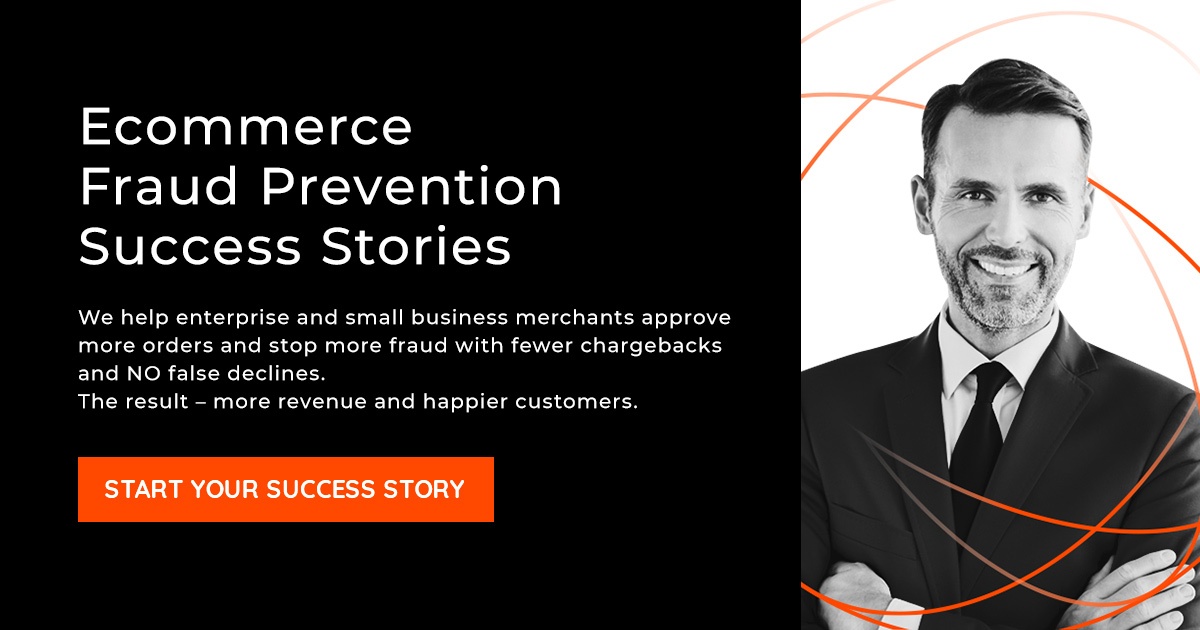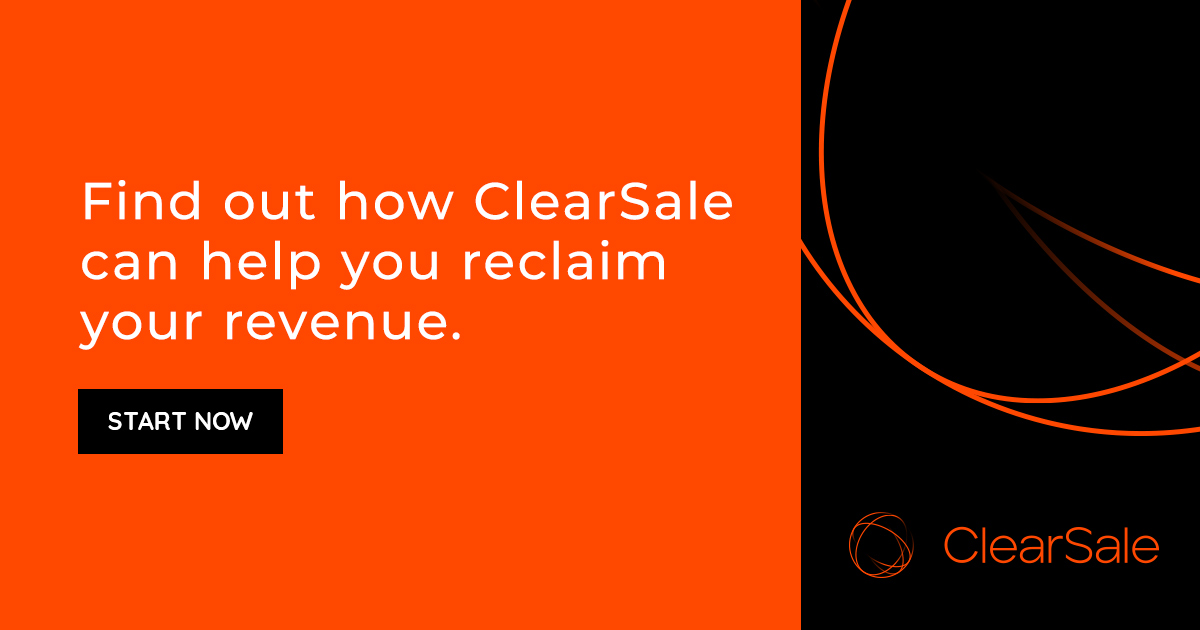SEASON 2 episode 07:
How to Stop Leaving Money on the Table: An Enterprise Ecommerce Fraud Discussion
When it comes to enterprise ecommerce fraud, the phrase “you don’t know what you don’t know” couldn’t apply more.Too often, enterprise merchants think they’ve cracked the code to fraud prevention, pointing to a homegrown solution. What these merchants don’t take into account are the typical fraud protection pitfalls that can be eating away at their revenue, right underneath their seemingly watchful eyes:
•They aren’t seeing the entire fraud landscape.
•Their manual review team isn’t adequately trained or staffed.
•They’re using a one-sign-fits-all-fraud approach.
•They’re not recognizing non-traditional types of fraud.
The reality is fraud isn’t chartable using straight lines – its growth is tracked in rippling circles. That’s why so much of it is missed and the number of fraudulent transactions increases every year. To make matters even more complicated, most enterprise merchants have no way of analyzing and adapting their solutions to new and emerging fraud patterns – they’re too busy fighting the “low-hanging” fraud and working on generating revenue.
In this episode of Gateway to Ecommerce, Rick Sunzeri, Director of Enterprise Sales at ClearSale dives deep into the ecosystem of enterprise ecommerce fraud and what to keep in mind as ecommerce sales continue to rise.
LISTEN NOW
Who are your hosts?
-

Rick Sunzeri
Rick Sunzeri is the Director of Enterprise Accounts at ClearSale who is an experienced sales professional with background in SaaS and complex network solutions. Rick specializes in enterprise-class sales with experience selling business applications to senior business and technical executives. He has a strong knowledge of complex selling process.
Podcast Episode Recap
FIGHTING FRAUD INVOLVES MORE THAN JUST REDUCING CHARGEBACKS
Enterprise merchants tend to say they have their fraud handled and point to a low chargeback rate.
While that’s well and good, a low chargeback rate isn’t necessarily an indicator that your fraud prevention strategy is best for your business.
More than likely, those companies have an internal team of fraud analysts who use a patchwork quilt of technology to filter out fraudulent transactions and pull additional people from other departments to manually review transactions when transaction volumes increase (during holidays and special sales).
On the surface, it appears to be working because their chargeback numbers are low. But, in the same way that you only see the tip of an iceberg above water, the true cost of a homegrown fraud prevention solution can only be seen when you look at what’s below the surface.
For the sake of low chargeback rates, many enterprise merchants lose revenue elsewhere:
• They pull staff from other departments for help, reducing productivity elsewhere in the company.
• Their fraud filters are set to be too sensitive or generic, which declines more valid transactions than they know about.
• They inadvertently sink their own transaction approval rate.
• They upset loyal customers who either won’t shop with them again or will take to social media to complain.
• They leave millions – yes, millions – of dollars on the table.
ENTERPRISE FRAUD HAS CHANGED FOREVER WITH THE PANDEMIC
During the pandemic, when people had no choice but to shop online, we saw the highest uptick in ecommerce shopping than ever before – the industry accelerated five to seven years. While there has been and will continue to be a slight slow-down with brick-and-mortar stores opening and restrictions rolling back, online shopping is now a learned behavior that a whole new market of consumers enjoy.
Those customers still prefer to shop with the large brands they frequent in person, however, which is fantastic news for enterprise merchants who benefitted greatly during the pandemic.
The problem is that those merchants now have more new customers than ever, making it difficult to distinguish a fraudster from a novice customer. That causes enterprise merchants to make mistakes that aren’t in their best interest, such as:
• Forgetting that their new users have little to no idea how to shop online – they need more instruction and handholding.
• Erring on the side of being too strict with unfamiliar customers and transactions.
• Declining perfectly good transactions – in fact, a new enterprise ecommerce customer is seven times more likely to be declined than somebody who's a regular shopper at any particular site.
Stay tuned for upcoming podcast updates and new episodes.
episode Transcript
Narrator
Hello and welcome back to the Gateway to Ecommerce podcast! There are many misconceptions about what fraud is and how companies should handle it. Many companies believe that they have fraud under control but in reality, they actually don’t.
The phrase “you don’t know what you don’t know” applies with unnerving precision here. There are several revenue-damaging pitfalls to the typical enterprise fraud protection approach, and these pitfalls often result in lost revenue.
For example:
● Merchants may not have as broad a picture of the fraud landscape as they should.
● Their manual review team may struggle with training and scaling.
● They might be a little too cautious.
● They might miss other types of fraud.
Fraud never grows in a straight line—it’s always dynamic. The good news? A more sophisticated fraud prevention strategy can keep ahead of fraudsters while preventing lost sales.
Enterprise merchants have little to no insight into fraud patterns and trends by industry, country, or other aggregators. In fact, no matter how skilled an enterprise merchant’s in-house team maybe, they're only going to have knowledge about their own fraud.
Yes, they can make some predictions about year-to-year behaviors on peak traffic days like Black Friday, but that’s still a very small part of a much larger picture.
Let’s hear from Rick about why most companies fail at fraud protection and how ClearSale tackles it.
Rick Sunzeri, the Director of Enterprise Sales at ClearSale dives deep into the ecosystem of enterprise ecommerce fraud and what to keep in mind as ecommerce sales continue to rise.
Rick Sunzeri
That typical phrase “fraud under control”, and could kind of pose a little difference between say, an SMB organization to a large enterprise organization. SMB might be taking a look at it as we have no chargebacks. When I first broke into this industry a few years ago, that was really the go-to-market strategy, was can we really address chargebacks that an organization is having. But fraud goes beyond just the chargebacks. If you take a look at a larger enterprise organization, they're going to, a lot of times, have the objection that we have fraud under control. They might have an in-house team that is pretty robust, but there are different areas of fraud, and within the organization that they need to be aware of when they're saying that they have fraud under control. Maybe they're experiencing low fraud pressure, but they might be doing that at the expense of revenue.
It's a pendulum that swings. I've seen too many times where an organization that has fraud, that's really under pressure for them. And they're being targeted and attacked.
They'll put policies in place and solutions in place. Whether that'll be internal or try to see what kind of vendor solutions may be out there. But now they're swinging the pendulum under to the other side where yeah, fraud is under control. But now you're losing revenue because you've tightened those controls too much. And you're into a situation where there may be false positives. You're actually declining good revenue. And that's really the issue that we primarily attack is, we're going to prevent fraud and help protect against fraud. But we want to make sure at ClearSale that we're optimizing your revenue.
We want to make sure that we're capturing as much revenue as possible, and you're not running into that false-positive situation. All that revenue that's lost due to incorrectly declined orders. Now it's come out that, just recently, that's more of a financial impact on organizations than fraud itself. Most of the time is just the revenue that's being lost trying to keep fraud under control. And that's just one aspect of it.
Narrator
Now that we know that fraud goes beyond the surface level of chargebacks, let's take a look at how fraud has changed since the pandemic and how the boom in new shoppers is affecting online companies.
As you listen, keep these questions in mind:
● How is the boom in new users post-pandemic affecting online companies?
● How has fraud changed?
Rick talks to us about how fraud is dynamic and adapts based on the pivots of the industry including the emergence of new customer demographics and behaviors.
Rick Sunzeri
It's not only post-pandemic, but I've just seen organizations in general that I've had that conversation, where I've been told fraud is under control. We're fine. We don't need to talk to anybody. And three months later, I'm getting a call back from them, or I'm checking in with them three months later, and they're in a time where yeah, we need to talk to you. Because they've been targeted again. And fraud is never kind of in a straight line. It's always dynamic as a rollercoaster where the pressure can go off and on. And fraudsters are pretty smart these days where they learn to kind of work around the rule sets that an organization may be putting in place. Post pandemic, it's even more dynamic than what we're seeing.
There's a lot of new users that are adapting to online ecommerce and buying online, transacting that have never actually done that before.
So a new user, it's been found, is seven times more likely to be declined than somebody who's a regular shopper at any particular site. So that's an area that we help address also, these new users that are coming online and an organization doesn't know how to take a look at them.
Are they fraudulent? Who are these people?
We haven't seen any data from this person before. So now we're going to be stricter and take a look at what we should be doing with this person. And the potential that it's fraudulent.
Let's lean-to that side and let's just decline the order. So there are two sides to it. There's fraud being dynamic in the first place, and now post-pandemic, there's just that whole dynamic of the new users that are adapting to online purchases.
Narrator
Rick made a valuable and valid point of understanding that control is an illusion of the mind. As technology advances so do fraudster tactics to steal information. This brings us to another misconception that’s floating around out there.
Online companies come in all sizes across industries and you might think the more experienced the company the more they are equipped to handle fraud, right?
That’s not necessarily true.
Rick breaks down how experienced companies may or may not be better at dealing with fraud than inexperienced ones. Let’s hear what he has to say.
Rick Sunzeri
It's both actually. And it's an organization that may be smaller and more inexperienced in dealing with fraud. I've seen organizations that have pulled over folks from customer service. From finance. From the warehouse to take a look at orders and try to determine whether they look to be fraudulent or not. And that person and that organization just do not have the right background and training to do that.
It might just be specific data points they're taking a look at:
● Is there a billing shipping mismatch?
● Are we seeing fraud coming from a specific area?
● Maybe we need to block that area or be more restrictive of that area. That's not always the case.
And then you could have a larger organization where it's a little bit different scenario. They think they have fraud under control.
They're more sophisticated. But at the same time, they may have fraud under control, and they think they've got a good order acceptance rate, but maybe they have policies in place and rules, and filters in place right at the processor level that are cutting out a lot of their sales, right at that level of the transaction. And they don't realize the revenue that's being lost just due to frauds and... Oh, I'm sorry, filters and rules that are in place trying to mitigate fraud. So there are different aspects depending on the size of the organization.
Narrator
In the high-pressure, high-stakes world of ecommerce fraud detection, every second counts. Whether your company is a global online retailer selling goods to millions, or a boutique site selling one-of-a-kind products to local customers; scams can cost you thousands of dollars each day.
Even though frauds have existed for a long time, they’re still growing in their scope and complexity each day. A few years ago, it was easy to spot an online purchase that was likely fraud; however, today’s processes are not as accurate. It all comes down to how well you protect yourself from malicious transactions and make your money work for you.
Fraud is a dynamic topic that will continue to adapt over time. The pandemic transformed how consumers interact with merchants and new customers have emerged with buying behaviors that both enterprise and small retailers have to stay ahead of the curve.
Rick shows us that having a fraud protection plan in place doesn’t mean that you are maximizing your revenue; you may be losing money if you are not consistently evaluating your data.
Thanks again for listening to Gateway to Ecommerce! If you like what you heard today, be sure to stay connected and subscribe or follow on all major platforms like Apple, Spotify, or iHeart. If you have a question or would like us to cover a topic, email us at podcast@clearsale.com, we would love to hear from you. To learn how to prevent ecommerce fraud, visit our website. We have a ton of resources dedicated to this topic that can help you on your ecommerce journey at www.clear.sale. Until next time!
















